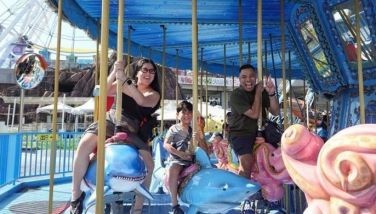The eternal President of the Republic
When Jimmy Carter turned over the US presidency to his successor, Ronald Reagan, he announced that “in a few days, I will lay down my official responsibilities in this office — to take up once more the only title in our democracy superior to that of president, the title of citizen.” The man went on to win a Nobel Peace Prize. Today’s heads of state contemplating life after politics should take note.
It goes against common sense, at least in a Machiavellian way, that a president would ever willingly relinquish his own power. If you are already in power — enjoying the fulfillment of childhood dreams of having your own portraits burned by angry protesters outside the palace gates — why let that dream end?
This is by no means a uniquely Filipino problem.Turn to this newspaper’s international news section and you are likely to find a story about some head of state in a pseudo-democratic country scrambling to cling to power by any means necessary. Honduras’s Manuel Zelaya is one of these (former) heads of state. Last month as president, he tried to alter the country’s constitution to extend his term. Today, thanks to mass public demonstrations, the country’s supreme court, its congress, its military, and its church, Manuel Zelaya is president no more.
Meanwhile, North Korean leaders take the idea of holding onto power literally. While Kim Jong-Il is well known to be the country’s egotistical leader, his even more egotistical father, Kim Il-Sung continues to hold the official title of “The Eternal President of the Republic.” He has been dead since 1994.
But if you were to introduce this novel idea of democracy to someone who’s never heard of it, he would probably be just as skeptical about any leader’s willingness to step down. Once given power, why would our dear leader agree to give it away? It goes against everything we know about human nature. As The Economist points out, explaining how this alien concept of democracy works to the uninitiated might sound something like this:
“A day is fixed. The citizenry, every Tom, Kim and Mary of it, if they so choose, troops along, marks a piece of paper and puts it in a box. The papers are counted, and, lo, if the count so says, the holders of the supreme powers of the state step down. Men with the power to tax or not tax, to spend this way but not that, to permit or outlaw, to make war or peace, to condemn millions to death in a nuclear holocaust: they quietly hand over all these powers to bitter rivals whose policies, character and competence they have spent months decrying.” It sounds crazy on paper, but sometimes, by some stroke of luck, it works.
For the Philippines, that stroke of luck came as our late President Cory Aquino, who not only restored our country’s democracy in attaining power, but (just as importantly) preserved democracy in having the strength to let it go. The closing remarks of her final State of the Nation Address were unequivocal in announcing that “on June 30, 1992, the traditional ceremony of political succession will unfold at the Luneta... This is the glory of democracy, that it’s most solemn moment should be the peaceful transfer of power.” People have a habit of using excessive hyperbole to mark the deaths of famous people. In our late president’s case, however, all praise is deserved.
I find it difficult to imagine why anyone would prefer being dragged out of power by his own people, feet first, instead of exiting with the graceful eloquence of a farewell speech. So for any curious head of state who just so happens to be reading this article and assessing the pros and cons of suspending democracy, let’s keep track of the score: whereas Cory Aquino’s country is mourning the death of its dear president, Manuel Zelaya’s country is celebrating the exile of theirs. And Jimmy Carter? His humanitarian work after stepping down from public office has been more acclaimed than anything he accomplished in office. Not only is there life after politics, but with added respect — and often, a Nobel Prize — that life can be a very good one indeed.
* * *
Comments and suggestions are much appreciated. Feel free to e-mail me at levistel@gmail.com.
















